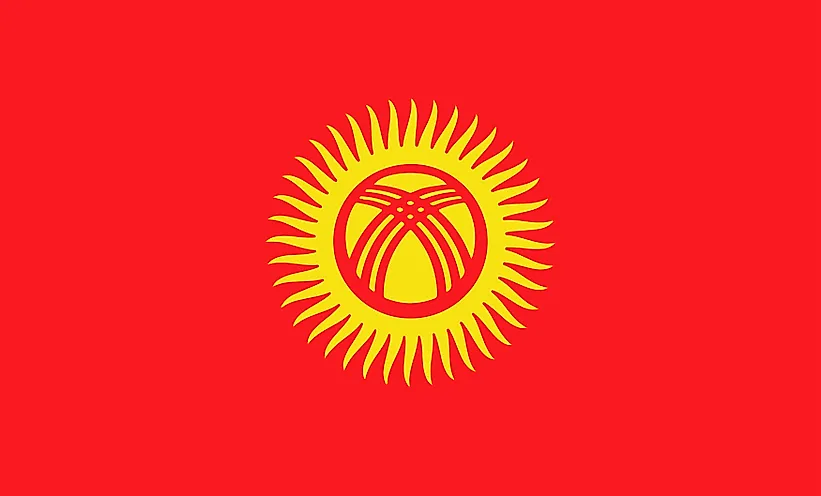
キルギス
| 大陸 | アジア |
| 資本金 | ビシュケク |
| 人口 | 5,727,553 |
| GDP | $21.01億ドル |
| 一人当たりGDP | $3,500 |
| ダイヤルコード | +996 |
| ISOコード(2文字) | KG |
| ISOコード(3文字) | KGZ |
キルギスについて
古くからの遊牧民の伝統と素晴らしい山岳風景が出会う国、キルギスへようこそ。人口約650万人、面積199,951平方キロメートルのキルギスは、美しい自然と豊かな文化遺産を併せ持ち、"中央アジアのスイス "と呼ばれています。
地理的特徴と自然の美しさ
キルギスの地理は天山山脈に支配されており、国土の80%以上が山で覆われている。ビクトリー・ピーク(7,439m)をはじめとするドラマチックな峰々、イシク・クル(世界で2番目に大きい塩水湖)のような手つかずの高山湖、そしてジェイロと呼ばれる広大な高地牧草地が特徴だ。
地形には深い谷、氷河、山岳牧草地などがあり、半砂漠から高山まで多様な生態系を形成している。変化に富んだ地形は、ユキヒョウ、マルコポーロ羊、数多くの鳥類など、ユニークな野生生物を支えている。
保護地域には、サリチャット・エルタシュ国立保護区やアラ・アルチャ国立公園などがあり、この国の顕著な生物多様性と山岳生態系を保護している。ユネスコの世界遺産に登録されているオシュの神聖なスライマン・トゥー山は、その景観の精神的な重要性を反映している。
文化遺産と伝統
キルギスの文化は遊牧民の伝統に深く根ざしており、ユルト(boz üy)は強力な文化的シンボルであり続けている。この国の遺産には、ユネスコが無形文化遺産に認定している世界最長の口承叙事詩のひとつである「マナス叙事詩」がある。
伝統芸術には、フェルト作り、特にシャイルダック(フェルトの絨毯)作り、鷲狩り、コムズ(3弦リュート)を中心とした独特の音楽伝統などがある。kok-boruのような馬のゲームは、キルギスの文化における馬術のスキルの継続的な重要性を示しています。
キルギス料理は遊牧民の伝統を反映しており、ベシュバルマク(5本指の肉と麺)やキミーズ(発酵させた雌馬の乳)といった料理が文化的アイデンティティの中心となっている。伝統的な工芸品や習慣は、もてなしの心と自然への敬意を大切にしている。
歴史の旅
キルギスの歴史は、古代の遊牧文明からさまざまな帝国を経て、1991年の独立に至る。この地域は、シルクロード、様々なハン国、そしてソビエト時代からの影響によって形作られてきた。
重要な時代には、遊牧民文明の発展、コカンド・ハン国の影響、ロシアの植民地化、ソ連の近代化、独立への挑戦と達成などがある。1991年以降の民主化により、中央アジアで最も民主的な国家として知られるようになった。
現代の経済状況
今日のキルギス経済は、伝統的な農業と畜産業に加え、鉱業、水力発電、観光業などの成長分野を併せ持っている。新シルクロード沿いという戦略的立地は、経済発展の機会を提供している。
最近の取り組みは、持続可能な観光開発、デジタルトランスフォーメーション、再生可能エネルギープロジェクトに重点を置いている。キルギスの美しい自然と文化遺産は、ユニークな観光地としての新たな地位を支えている。
国際関係とグローバルポジション
キルギスは中央アジアの地域協力を推進しながら、バランスの取れた国際関係を維持している。民主的発展と環境保護へのコミットメントが、キルギスのグローバルな関与を形作っている。
ご存知でしたか?
- キルギスの叙事詩『マナス』は、ホメロスの『オデュッセイア』の20倍も長いのですか?
- イシク・クル湖は標高の高い場所にありながら凍らない?
- 伝統的な鷲狩り(ベルクッチ)は今でも行われているのか?
- この国では、伝統的なスポーツや文化を祝うワールド・ノマド・ゲームズが開催される。
結論
キルギスは雄大な自然と豊かな文化が融合したユニークな国です。そびえ立つ山々から遊牧民の伝統まで、民主化への熱望から環境保護への取り組みまで、キルギスタンはその独特な遺産を維持しながら進化し続けている。経済発展や環境保護などの課題に取り組む中で、キルギスタンは持続可能な成長を促進しながら、独自の山岳生態系と文化的伝統の保護に取り組んでいる。





